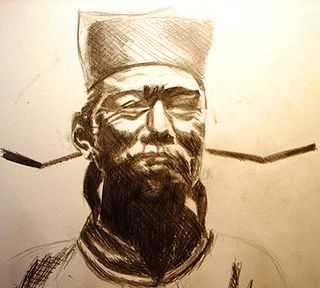The 850s decade ran from January 1, 850, to December 31, 859.
The 680s decade ran from January 1, 680, to December 31, 689.
The 530s decade ran from January 1, 530, to December 31, 539.
The 500s decade ran from January 1, 500, to December 31, 509.
The 510s decade ran from January 1, 510, to December 31, 519.
The 520s decade ran from January 1, 520, to December 31, 529.
The 490s decade ran from January 1, 490, to December 31, 499.
The 480s decade ran from January 1, 480, to December 31, 489.

Year 523 (DXXIII) was a common year starting on Sunday of the Julian calendar. At the time, it was known as the Year of the Consulship of Maximus without colleague. The denomination 523 for this year has been used since the early medieval period, when the Anno Domini calendar era became the prevalent method in Europe for naming years.
Year 524 (DXXIV) was a leap year starting on Monday on the Julian calendar. In the Roman Empire, it was known as the Year of the Consulship of Iustinus and Opilio. The denomination 524 for this year has been used since the early medieval period, when the Anno Domini calendar era became the prevalent method in Europe for naming years.

Year 526 (DXXVI) was a common year starting on Thursday of the Julian calendar. At the time, it was known as the Year of the Consulship of Olybrius without colleague. The denomination 526 for this year has been used since the early medieval period, when the Anno Domini calendar era became the prevalent method in Europe for naming years.

Year 532 (DXXXII) was a leap year starting on Thursday of the Julian calendar. At the time, it was known as the Second year after the Consulship of Lampadius and Probus. The denomination 532 for this year has been used since the early medieval period, when the Anno Domini calendar era became the prevalent method in Europe for naming years.

Year 584 (DLXXXIV) was a leap year starting on Saturday of the Julian calendar. The denomination 584 for this year has been used since the early medieval period, when the Anno Domini calendar era became the prevalent method in Europe for naming years.

Year 535 (DXXXV) was a common year starting on Monday of the Julian calendar. At the time, it was known as the Year of the Consulship of Belisarius without colleague. The denomination 535 for this year has been used since the early medieval period, when the Anno Domini calendar era became the prevalent method in Europe for naming years.

Year 590 (DXC) was a common year starting on Sunday of the Julian calendar. The denomination 590 for this year has been used since the early medieval period, when the Anno Domini calendar era became the prevalent method in Europe for naming years.

Year 858 (DCCCLVIII) was a common year starting on Saturday of the Julian calendar.

Year 687 (DCLXXXVII) was a common year starting on Tuesday of the Julian calendar. The denomination 687 for this year has been used since the early medieval period, when the Anno Domini calendar era became the prevalent method in Europe for naming years.

700 (DCC) was a leap year starting on Thursday of the Julian calendar, the 700th year of the Common Era (CE) and Anno Domini (AD) designations, the 700th year of the 1st millennium, the 100th and last year of the 7th century, and the 1st year of the 700s decade. As of the start of 700, the Gregorian calendar was 3 days ahead of the Julian calendar, which was the dominant calendar of the time.

Year 1032 (MXXXII) was a leap year starting on Saturday of the Julian calendar.

Year 1075 (MLXXV) was a common year starting on Thursday of the Julian calendar.











